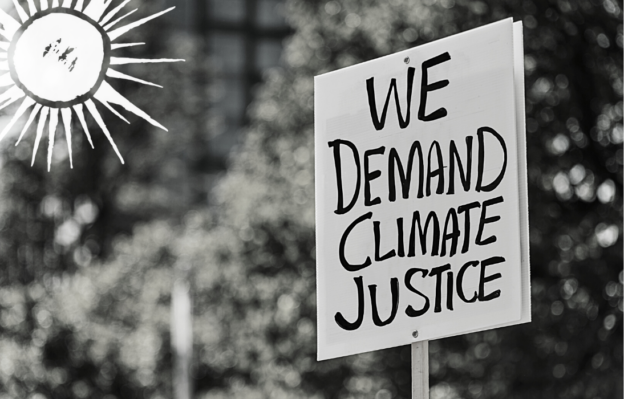
Laudato Si Week Calls Us To Reject Oppressive Structures
Virginia Schilder
May 26, 2022
This is part two in a three part reflection on Laudato Si Week (May 22-29, 2022) which celebrates the anniversary of Pope Francis’ encyclical on integral ecology and care for creation by inviting all people of goodwill and prayer and study to on how they can tackle the climate crisis.
Read Part One Here | Read Part Three Here
Ecological injustice is intimately linked to economic injustice. They both refer to how we live in our common home, Earth – in fact, the “eco” in both “ecology” and “economy” comes from the Greek word “oikos,” meaning house!
At present, we distribute the resources of our home through a global economy that is based on accumulation, consumption, competition, extraction, and exploitation. Global, imperial capitalism has long been driving the degradation of local sustainable economies and food systems, as well as natural resources depletion, habitat destruction, and the mass pollution that has created climate change. In this way, our capitalist system and its concentration of resources is fundamentally at odds with ecological flourishing, which is predicated on practices of sharing, cooperation, reciprocity, and respecting limits.
The central role of capitalism in ecological degradation further exemplifies the way in which the ecological crisis is inseparable from our structures of economic, racial, and social oppression. All of these interconnected realities reflect a need for something that Pope Francis calls “integral ecology” in his 2015 encyclical Laudato Si.
Integral ecology refers to an interstructural and holistic approach to political, social, economic, and environmental problems. What integral ecology gets at, essentially, is that we live in an interconnected world. We are connected to each other, as well as to the Earth’s lands, waters, air, non-human life, and climate. Similarly, structures of power and oppression – such as capitalism, racism, patriarchy, and colonialism – are also intertwined.
This is why Pope Francis observes, “We are not faced with two separate crises, one environmental and the other social, but rather one complex crisis which is both social and environmental.” Francis emphasizes that the health of our institutions has implications for the health of the environment, our bodies, and our communities. As a result, Francis offers, “Strategies for a solution demand an integrated approach to combating poverty, restoring dignity to the excluded, and at the same time protecting nature.”
Integral ecology has much to teach us about ourselves as holistic, interdependent communities. It helps us see the ways in which our present socioeconomic structures disrupt harmony with other humans and the Earth. Many of us may feel alienated from one another, from the land we inhabit and the other creatures around us, from what we produce and what we consume. But in ecosystems, all beings are enwrapped in an enormous web of reciprocal interrelation.
Jesuit Fr. Thomas Reese highlights Pope Francis’ teaching that “Relationships take place at the atomic and molecular level, between plants and animals, and among species in ecological networks and systems. For example, [Francis] points out, ‘We need only recall how ecosystems interact in dispersing carbon dioxide, purifying water, controlling illnesses and epidemics, forming soil, breaking down waste, and in many other ways which we overlook or simply do not know about.’”
We too are embedded in these webs. Pope Francis affirms that the natural world is not simply our “environment.” Nature is not something separate from us, nor the mere setting in which we live. Rather, “we are a part of nature.” Plants, animals, the air, water, fungi, bacteria, and soils are members of our communities — or rather, we are members of their communities! — and our flourishing is linked to theirs.
We have the choice of either participating in our ecosystems with care and respect, or forgetting our embeddedness, taking more than we need, and ravaging the land and each another.
Virginia Schilder, a graduate student attending divinity school in Massachusetts, completed a one-year fellowship with NETWORK’s Communications team in early May 2022.







